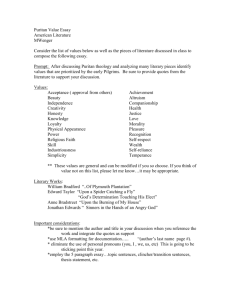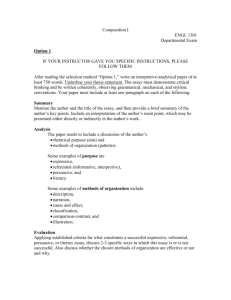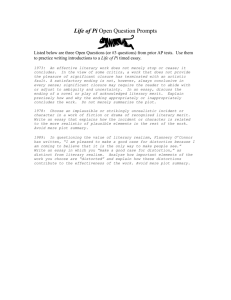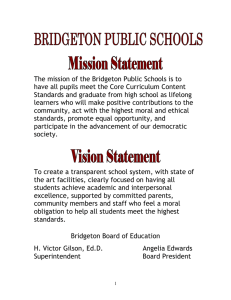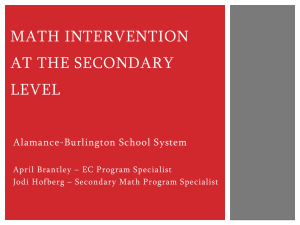English IV Advanced Placement Students 2014
advertisement
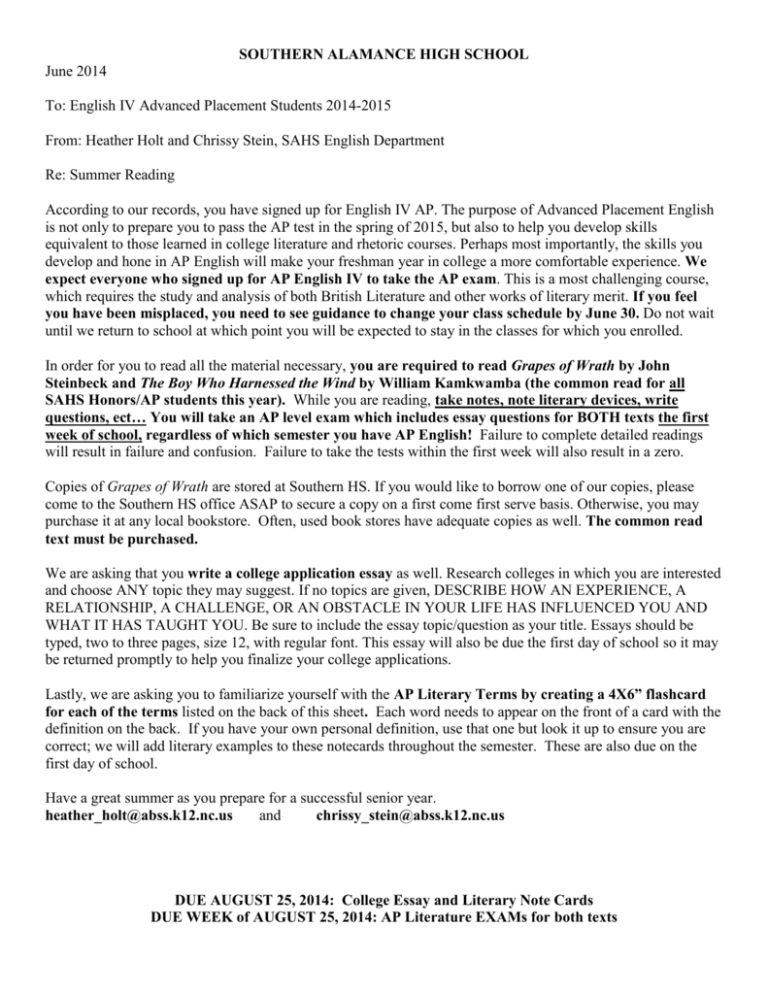
SOUTHERN ALAMANCE HIGH SCHOOL June 2014 To: English IV Advanced Placement Students 2014-2015 From: Heather Holt and Chrissy Stein, SAHS English Department Re: Summer Reading According to our records, you have signed up for English IV AP. The purpose of Advanced Placement English is not only to prepare you to pass the AP test in the spring of 2015, but also to help you develop skills equivalent to those learned in college literature and rhetoric courses. Perhaps most importantly, the skills you develop and hone in AP English will make your freshman year in college a more comfortable experience. We expect everyone who signed up for AP English IV to take the AP exam. This is a most challenging course, which requires the study and analysis of both British Literature and other works of literary merit. If you feel you have been misplaced, you need to see guidance to change your class schedule by June 30. Do not wait until we return to school at which point you will be expected to stay in the classes for which you enrolled. In order for you to read all the material necessary, you are required to read Grapes of Wrath by John Steinbeck and The Boy Who Harnessed the Wind by William Kamkwamba (the common read for all SAHS Honors/AP students this year). While you are reading, take notes, note literary devices, write questions, ect… You will take an AP level exam which includes essay questions for BOTH texts the first week of school, regardless of which semester you have AP English! Failure to complete detailed readings will result in failure and confusion. Failure to take the tests within the first week will also result in a zero. Copies of Grapes of Wrath are stored at Southern HS. If you would like to borrow one of our copies, please come to the Southern HS office ASAP to secure a copy on a first come first serve basis. Otherwise, you may purchase it at any local bookstore. Often, used book stores have adequate copies as well. The common read text must be purchased. We are asking that you write a college application essay as well. Research colleges in which you are interested and choose ANY topic they may suggest. If no topics are given, DESCRIBE HOW AN EXPERIENCE, A RELATIONSHIP, A CHALLENGE, OR AN OBSTACLE IN YOUR LIFE HAS INFLUENCED YOU AND WHAT IT HAS TAUGHT YOU. Be sure to include the essay topic/question as your title. Essays should be typed, two to three pages, size 12, with regular font. This essay will also be due the first day of school so it may be returned promptly to help you finalize your college applications. Lastly, we are asking you to familiarize yourself with the AP Literary Terms by creating a 4X6” flashcard for each of the terms listed on the back of this sheet. Each word needs to appear on the front of a card with the definition on the back. If you have your own personal definition, use that one but look it up to ensure you are correct; we will add literary examples to these notecards throughout the semester. These are also due on the first day of school. Have a great summer as you prepare for a successful senior year. heather_holt@abss.k12.nc.us and chrissy_stein@abss.k12.nc.us DUE AUGUST 25, 2014: College Essay and Literary Note Cards DUE WEEK of AUGUST 25, 2014: AP Literature EXAMs for both texts AP Literature and Composition: Literary Terms Allegory Alliteration Allusion Ambiguity Amplification Anachronism Analogy Anagram Analysis Anaphora Anastrophe Anecdote Anthropomorphism Antagonist Antimetabole Antithesis Aphorism Apologia Apostrophe Archetype Argument(ation) Assonance Assumption Asyndeton Audience Blank Verse Characterization Chiasmus Circumlocution Classicism Cliché Climax Colloquialism Comedy Conceit Conflict Connotation Consonance Contrast Denotation Denouement Deus ex Machina Dialect Dialectics Dichotomy Diction Didactic Dogmatic Elegy End stopped Enjambment Epic Epigram Epilogue Epitaph Epithet Euphemism Euphony Evocative (evocation) Existentialism Exposition Expressionism Fable Fallacy Falling Action Farce Figurative Language Flashback Foil Folk Tale Foreshadowing Frame Free Verse Genre Gothic Tale Hubris Hyperbole Iambic Pentameter Imagery Implication Incongruity Inference In medias res Irony Interior Monologue Inversion Juxtaposition Litotes Lyric Magic(al) Realism Metaphor (extended, controlling, and mixed) Metaphysical Metonymy Mode of Discourse Modernism Monologue Mood Motif Myth Narrative Narrator Naturalism Novelette/Novella Omniscient Point of View Onomatopoeia Oxymoron Pacing Parable Paradox Parallelism Parody Pathos Pedantry Personification Plot Poignant Point of View Postmodernism Prose Protagonist Pun Purpose Realism Refrain Requiem Resolution Restatement Rhetoric Rhetorical Question Rhyme/Rime Rhyme Scheme Rising Action Romanticism Satire/Sarcasm Scansion Setting Simile Soliloquy Sonnet Spiritual Speaker Stereotype Stream of Consciousness Structure Style Subordination Surrealism Suspension of Disbelief Symbol Synesthesia Synecdoche Syntax Theme Thesis Tone Tongue in Cheek Tragedy Understatement Verisimilitude Vernacular Voice




